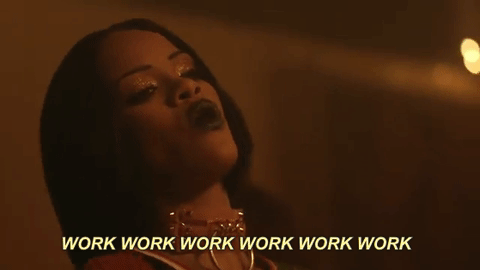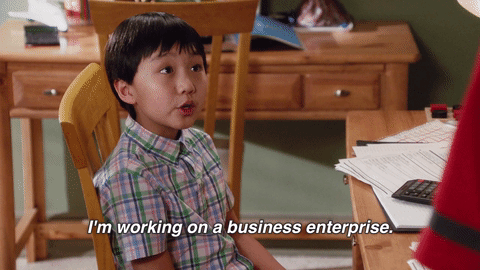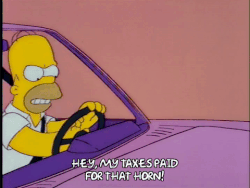
I’m starting a business. What’s this election got to do with me?
You might have heard there’s another election happening on the 8th of June. But with so much info being thrown around, we’re suffering from a serious case of TMI.
We’re trying to make it a little simpler. We've trawled through all the information we can get on the top five parties (thank us later – no seriously, do – this took ages) to try and make sure you've got the facts you need to make a decision.
This one’s for people who are about to take over a business, or kickstart one of your own. If that doesn’t quite fit your situation, take a look at the rest of our coverage for some other scenarios that might match you better.*
Work

Seeing as you’ll be running a business and hiring employees, you’re probably starting to think about what kind of ‘job market’ each government would try and create. Here’s the scoop:
The Conservatives say they're all about "secure, high paying jobs in a strong economy" (they're really, really keen on using this word 'strong' as much as possible this campaign...) They say they want to bring "jobs of the future" to the UK and argue their policy of cutting corporation tax will make the country more attractive for businesses, which will then in turn create jobs. The current government does have a strong (sorry) track record of creating lots and lots of jobs – but they tend to be more on the low-pay, no-contract side of things.
Labour wants to “deliver investment and skills across the whole country” to make sure that job creation is more balanced and not just focused in the South East. It also wants to outlaw unpaid internships, which it says will help make sure that the people getting the best experience aren't just the people who can afford it.
Business

Politicians talk a lot about supporting ‘small businesses’ – they just have very different ideas about how to do that. Here’s what we know:
In March, the Conservatives said they were going to increase business rates – a tax that businesses pay to the government, with some businesses seeing the amount they paid rise by as much as 125%. This was pretty unpopular, so the government has now announced a £300m fund to be used over the next four years to help businesses affected. Local councils decide which local businesses get the money.
Labour says they’d ‘declare war’ on late payments to small businesses by big ones, forcing suppliers to send the cash within 30 days. They’d also create a network of regional investment banks to give small firms funding, and stop the requirement for quarterly reporting. According to the draft Labour manifesto, small business will also be offered loans from new 'regional development banks'.
One thing which might end up costing small businesses more is their plan to up the minimum wage to £10 for everyone.
The Lib Dems are calling themselves the ‘new party of business’, and have been talking pretty loudly about how much they oppose what the Conservatives are doing. They say Brexit will be bad for businesses, and as the party that stands for keeping trade easy and open, they’re on businesses’ side.
Taxes

All businesses have to pay tax. Business rates, corporation tax, national insurance, you name it. This is what the parties are saying about it
The Conservatives have said that "low taxes" is one of their big principles of a "strong economy". They won’t raise VAT, and have said they'll try and make sure the whole tax system is simpler for everybody.
The Chancellor (Philip Hammond) got in a lot of trouble after the Budget in March when he said he would raise income tax for self-employed people – something his party had promised they wouldn’t do in the last manifesto before the last election in 2015. So now they’ve got the chance to write a new manifesto, it seems likely they’ll take that promise out.
Labour is doing the opposite – they talk about tax all the time. They want to increase taxes on corporations and on people earning more than £80,000, and use the money to fund everything from free school meals to more hospitals. The Greens haven’t said much on tax but seem to agree with most of Labour’s ideas.
The Lib Dems want to add a penny to everyone’s income tax, and use the money to fund the NHS.
Housing
Whatever your current living sitch, pretty much everyone agrees that the UK's in the middle of a housing crisis. So here's how each party plans on fixing it
The Conservatives released a big paper in February about how they’d fix the housing market. Their main ideas were to give small building companies more funding to build homes, outlaw renting agency fees, and give local authorities more funding to build council homes too.
The Lib Dems say the Conservative Party isn’t going far enough. They say they’d build 300,000 new homes, give housing associations more money, create a Housing Investment Bank to generate even more money, and recruit more people into construction. They’d ban renting agency fees too.
Labour wants to go even further. They say they’ll build a million homes, half of which will be council houses. They’ve talked about putting a cap on how high landlords can set the rent – called a ‘rent control’ – and creating a charter of private tenants’ rights to make sure they don’t get ripped off. They’d also make a list of legal standards that rented homes need to comply with, like requirements for safe wiring and freedom from damp.
Healthcare
Hopefully you won’t have had to yet, but have you thought about what would happen if you got sick?
The Lib Dems have promised to treat mental health problems as equal in the NHS, said they will support the introduction of a regulated cannabis market (basically means legalization) and said they will treat drug use as a health issue not a criminal one. They've said they'll raise more money for the NHS by putting an extra penny on every pound everyone pays in income tax.
Labour has pledged £37bn for the NHS by 2022, which it says will be funded by tax raises for corporations. It's also said it'll stop the government from putting private companies in charge of running some parts of the NHS service – something called 'privatization' which the Conservatives have been doing quite a lot of. They've said they'll treat mental health issues equally in the NHS, and will fuse together the support services that exist for elderly and disabled people with the running of the whole health system.
The Greens are on side with these ideas as well, saying they want to take private companies out of the health system all together. So does the Scottish National Party.
The Conservatives say they'll increase funding to the NHS by £8 billion over the next five years. They will also stop people who are not resident in the UK using the NHS for free, though say it will still be at a 'competitive' rate when compared with the health insurance you pay to access healthcare overseas. There's not much mention in the manifesto about the government's tactic of allowing private companies to privde some NHS services.
Transport

How do you get around? When your train or bus is delayed, who do you blame? And how much does it cost to get from A to B?
Labour has said it will bring the railways under government control, which would mean all the different rail networks would have one owner – the government. It has also said it will expand the UK’s bus network. Greens are (you guessed it) on the same page as Labour here, but they also want to put an immediate 10 per cent fare reduction in place, and start campaigns to get people walking and cycling more too.
The Conservatives definitely wouldn't be keen on the whole government-ownership idea – they've just decided to give private companies like Virgin and Southern some control over things like repair and maintenance alongside the government-owned Network Rail. Their main thing is pushing through HS2, a high speed rail from London to Manchester. They've pledged £1.1bn to improve local transport, and included a grand total of one line about cycle lanes.
The fun stuff

You might want to use a public library every now and then, or go to the theatre or sports centre for a bit of a break. How much support should you get from the government to be able to do that?
Labour wants to increase access to arts, culture and sports, and has said it will introduce a £1bn fund to improve access to cultural institutions for everyone.
The idea behind the Conservative arts cuts is basically just the 'free market' way of thinking – which just means that you believe things will be better quality and more efficient if they're paid for by whoever wants to pay for them in a 'free' exchange, rather than government-funded. They do still want to fund school sports, and keep museums free.
Brexit
It's the reason this general election was called in the first place, and whoever gets in is going to have to go through a loooong negotiating process. Whatever they decide is going to have some definite effects on Brits in the UK and across the EU. Here's what each party has to say on it:
A lot of Conservatives (including Theresa May) were anti-Brexit before, but they're now pretty solidly pro. Theresa May is taking a pretty tough approach to talks so far, saying "no deal is better than a bad deal" – but at the same time, their manifesto says they want to keep as many of the agreements that let the UK trade with the EU without any extra fees as possible. But however talks go, they'd definitely go ahead under a Conservative government.
The Lib Dems are on the opposite side of the spectrum – they're strongly against leaving the EU and say they'll do everything they can to protect the 'single market', which is the arrangement between EU countries where trade is made as simple as possible. They want another referendum when the deal is ready to give UK citizens a say on whether they're happy with it.
The Greens are on the Lib Dem side on this one, saying basically the same thing. So is the Scottish National Party – except they also want the Scots to have some kind of special arrangement with the EU after Brexit, seeing as the majority of Scots didn't want to leave in the first place.
Labour used to be pro-EU as well, but now they're kind of in a happy middle between the Lib Dems and the Conservatives – they want to make sure workers rights and access to the single market is protected, but they're against a second referendum.
If you're someone who makes their decision to vote based on how each party approaches the 'big issues' like poverty or inequality, climate change, or homelessness, rather than on the things that affect you directly, stay tuned for our piece next week comparing what each party has to say about those wider issues.
If you're someone who doesn't actually vote at all, because you don't think it matters – if that's the case, take a look at our video out next week about how governments link to your day to day.
We'll be updating these articles as more information becomes available.
If you enjoyed this take a look at the rest of our GE2017 coverage.



